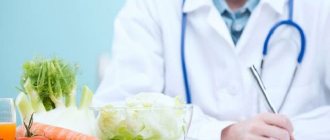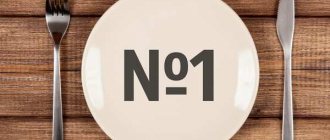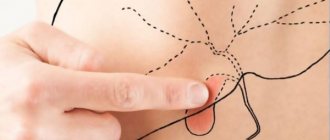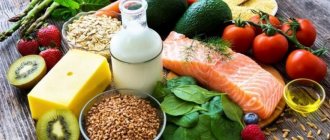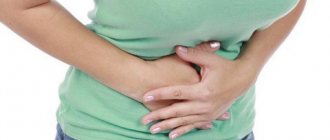Causes of poisoning
There are quite a few causes of poisoning. In any case, you shouldn’t hope that everything will go away on its own; you need to see a doctor. Especially if the condition worsens.
- Foods that have expired can lead to poisoning.
- Insufficiently washed food.
- Improper food storage.
- Cooking food without following proper processing rules.
- Poisoning can come from products purchased at spontaneous markets where no one checks the products.
In case of poisoning, bed rest and drinking plenty of fluids are recommended; water will help quickly remove toxins from the body, and will also help cleanse the stomach of poor quality food.
At the moment of poisoning, you don’t want to eat. Well, no time for food. But, when it becomes easier, now you can think about food. But you shouldn’t eat everything.
Also, doctors recommend taking medications, at least for a few days, that help digest food (Creon, Pancreatin, etc.) And for the intestines they recommend a probiotic, a very good probiotic “Symbiter”, I took this probiotic. But, again, as for medications, I don’t want to talk about this at all, since doctors should prescribe treatment.
What to do in case of poisoning at home?
The incubation period (the time from the moment of infection to the appearance of the first symptoms) for food poisoning is usually only a few hours, and without treatment, the main symptoms quickly worsen. First of all, at the first symptoms of poisoning, you need to call a doctor who will assess your condition and recommend further treatment.
Help for poisoning at home is structured according to the following scheme:
1. It is necessary to induce vomiting.
2. Take enterosorbents, which absorb and remove toxins from the body. For example, Filtrum is a powerful preparation based on lignin.
3. Drink 2-3 liters of water per day to prevent dehydration.
4. Follow a diet to restore the functioning of the gastrointestinal tract.
What can you eat after poisoning?
After poisoning, it is recommended to drink as much clean water as possible; you can prepare a rosehip infusion. You can also prepare chamomile poison. Drink a tablespoon every hour. If you have an appetite, you can drink a cup of sweet tea with crackers.
Chicken broth, buckwheat or rice soup with crackers are very suitable. Buckwheat or rice porridge is also suitable, but the rice porridge should not be crumbly. It is better to eat literally 1-2 spoons.
What to eat the day after poisoning? It is best to eat pureed dishes, puree soup, for example. You can eat rice or buckwheat porridge, mashed potatoes. Food should not be too hot or cold. You also need to drink more; clean water, sweet tea, rosehip decoction, mineral or table water are suitable.
After poisoning, the very next day you can eat:
- Vegetable puree soups.
- Boiled minced meat in the form of steam cutlets.
- Boiled minced fish in the form of steam cutlets.
- Baked cottage cheese - soufflés, casseroles, puddings.
- Porridge with water (rice, buckwheat).
- Crackers.
- Cracker.
- Boiled or baked vegetables.
- Mineral table water, not carbonated.
- Green tea.
- Baked or boiled fruits (not sour) - apples, pears, quince.
- Chamomile decoction with honey.
- Rose hip decoction with honey
It should also be noted that meals should be fractional, that is, eat more often, but a little at a time. About 5-7 times a day. Diet in case of poisoning helps restore the functions of the bile, pancreas, and intestines.
Nutrition after poisoning
After you have managed to “agree” with your stomach and the diarrhea has stopped, you need to introduce beneficial bacteria into your body. You will need to restore balance. To do this, sometimes it is enough to include fermented milk products in the diet after complete recovery: kefir, yoghurt, fermented baked milk, etc. And of course, nutrition after poisoning should be complete.
However, this is not always enough. Therefore, I recommend purchasing some kind of probiotic at the pharmacy. There are a great variety of them now: “Acipol”, “Bactistatin”, “Bifidumbacterin forte”, “Bifidumbacterin”, “Baktisubtil”, “Bifacid”, “Biosporin”, “Bifilong”, “Bifiliz”, “Colibacterin”, “Linex”, “Lactobacterin”, “Subalin”, “Sporobacterin”, “Enterol” and others. The method of administration, dosage, and duration of the course of administration are indicated in the annotations. All you have to do is choose the one that's right for you. To do this, consult your doctor or pharmacist; in extreme cases, carefully read the instructions to exclude contraindications.
In addition, doctors often recommend taking additional products that promote the growth of beneficial microflora (for example, Lactulose, Hilak Forte, Normaze).
And finally, to improve digestion, enzyme preparations are used (for example, Festal, Mezim Forte, Panzinorm and others). After poisoning, it is recommended to take them with food for a week or even two.
Poisoning, of course, is a very unpleasant thing, but if you look closely, it also has its advantages. When the body comes out of its stupor, it loses extra pounds, sometimes a significant amount. This is express weight loss. Every medal always has two sides. But this is, of course, humor. Get well! And never get sick again! And be sure to learn a lesson from this situation for the future. Don't let it happen again in the future. What was done wrong? Didn't you like lunch at the cafe? Did you eat the salad from the refrigerator the day before yesterday? Did the meat seem undercooked? Did the sausage have a strange smell? Were the eggs stale? Pay close attention to such signals, do not ignore them.
The cause of poisoning is often carelessness and simple failure to comply with hygiene rules. Don't forget to wash your hands after going to the toilet and after treating pets. The elementary rules that everyone knows, unfortunately, are very often forgotten by us.
If you touch raw meat or eggs with your hands, wash your hands with soap. Raw food generally contains a huge amount of bacteria. Therefore, do not eat raw eggs, raw fish, or meat. Wash fruits and vegetables thoroughly. Don’t be lazy, put fresh herbs in running water for 30 minutes. When preparing food, wash your hands thoroughly every time.
Try to cook meat and fish until completely boiled or cooked through. Until the redness disappears. Avoid dishes with blood. This way you will protect yourself from potentially dangerous bacteria.
Never taste bloated, cloudy canned goods. Health is much more valuable than money saved on buying new products. Pay close attention to the expiration dates of products. Don’t take unnecessary risks yourself, and don’t let others poison your body – it will serve you well!
Prevention methods
The basic rules for preventing poisoning are quite simple:
1. Carefully monitor the freshness of products and proper storage.
2. Maintain hygiene before eating, wash your hands with soap.
3. Wash egg shells under the tap before breaking the egg.
4. Wash vegetables, fruits and herbs thoroughly, trim the peel.
5. Check the expiration date of products before purchasing and consuming.
6. Remember about food proximity in the refrigerator: do not leave ready-made dishes with raw meat, etc. on the same shelf.
7. Keep kitchen utensils clean.
8. Minimize alcohol consumption.
9. Use medications strictly according to the instructions and recommendations of the doctor.
10. Avoid suspicious catering establishments.
If you pay close attention to hygiene and the food you eat, you can reduce the risk of poisoning to a minimum.
The cause of food poisoning is the consumption of low-quality products, infection with viruses and bacteria, and failure to comply with personal hygiene rules. In this case, the body resists further food intake - the patient experiences nausea, vomiting and stool disorders. However, during the recovery period it is possible and even necessary to eat - a properly selected diet in case of poisoning is a way to speed up recovery and normalize the functioning of the gastrointestinal tract.
Diet after poisoning and nutritional features
It is important to drink plenty of water after poisoning. You can drink as much water as your body requires. Fluid is very necessary because the body is dehydrated. At first, it is better to drink still mineral water, then you can drink rosehip tea or dried fruit compote. The diet should be followed until the functioning of the digestive system normalizes.
Therefore, you need to forget about ordinary and everyday food. Naturally, you need to exclude all fatty, spicy foods, no spices, sweets, no seasonings, carbonated drinks and alcohol. Your diet should not contain foods that cause fermentation and rotting processes. Preference should be given to steamed or boiled food. You can have light broths, porridge (buckwheat, oatmeal, rice), mashed potatoes, green tea or rosehip, preferably.
You need to eat fractionally, that is, in small portions and often, up to six times a day. Your food should be warm. After your condition has improved, do not forget to take care of your microflora, because beneficial microorganisms are simply necessary. To do this, you can drink kefir, yogurt, yogurt, and you can also add special medications that will be prescribed by your doctor.
What to take if poisoned?
The most important thing in treating poisoning is to remove toxic substances from the body. For this purpose, enterosorbents are taken, for example, Filtrum.
The drug is used for poisoning of various origins (poisoning with food, alcohol, drugs).
The tablet of this drug contains a large number of pores of different sizes, therefore, like a sponge, Filtrum absorbs toxic substances of different molecular weights and removes them from the body.
The drug is easy to use: it does not require additional preparation, it has a neutral taste, making its use better tolerated by a patient with poisoning.
Filtrum is suitable for the family medicine cabinet because it has a favorable safety profile, which is why it is prescribed to both young children and pregnant women.
Adults take the medicine 3-4 times a day an hour before meals and other medications, children - depending on age, according to the instructions for use of the drug.
It should also be noted that the drug is compactly packaged: it takes up little space and is convenient to take with you.
Diet after poisoning in children
Childhood poisoning can be dangerous due to its consequences, which can arise due to intoxication of the child’s body. As soon as your child shows any signs of poisoning, be sure to provide him with first aid. But only a doctor should prescribe the correct diagnosis and treatment. A child's body may take a little longer to recover than an adult. A child’s nutrition after poisoning must be taken very seriously. Therefore, carefully monitor your diet.
- Most likely, if your child is poisoned, at first he will not want to eat. In order for the toxins to come out as quickly as possible, the child must be given plenty of fluids. First of all, purified water, compote, weak tea, or maybe a chamomile decoction.
- If the child has an appetite, then let him eat a little in small portions every two hours.
- If there is no vomiting, then you can feed the baby liquid mashed potatoes or thin porridge, or rice porridge.
- Later, you can add vegetable soups, boiled meat, and organic yogurt to your diet.
- Under no circumstances should you give your child all kinds of sweets, carbonated drinks, chocolates, and chips.
Why do you need a diet after poisoning?
Poisoning is always accompanied by irritation and inflammation of the gastric mucosa. Therefore, after recovery, to fully restore the function of the gastrointestinal tract, you will need to follow a diet for some time.
How long it will be necessary to observe it depends on whether the patient will have any unpleasant sensations from the gastrointestinal tract after recovery. For some people, it is enough to follow a diet for a week, while others will need a multi-month diet and, possibly, additional examination to fully restore digestive function.
It happens inside of us
The body does not recover immediately after suffering intoxication, because toxic substances already had a detrimental effect on almost all organs. Often after poisoning, the stomach hurts - this is explained by the fact that the gastric mucosa becomes inflamed - acute gastritis develops. The stomach stops doing its usual job - digesting food. Nausea, belching and pain appear after poisoning. Poorly digested food enters the intestines. And he, of course, is “dissatisfied” with the poor functioning of the stomach, and his “indignation” is manifested by bloating, gurgling and diarrhea after poisoning.
First of all, the liver suffers from intoxication: it works around the clock, seven days a week, neutralizing toxic substances that enter the body. “Fatigue” of the liver may be indicated by heaviness in the right side, yellowness of the skin, bitterness in the mouth, and elevated temperature after poisoning. During the period while recovery from poisoning is underway, general weakness, pain in muscles and joints, poor appetite, insomnia and other symptoms may bother you.
During the recovery period, medications are prescribed that improve digestion processes (enzymes) and the intestinal sorbent Enterosgel, which neutralizes and removes toxic molecules.
To restore beneficial intestinal bacteria, doctors prescribe effective tablets after poisoning - probiotics.
What to eat immediately after poisoning
Basic principles of therapeutic nutrition after poisoning:
- it is necessary to provide the body with all the food products necessary for normal life;
- the diet should be gentle to reduce the load on the digestive organs; this is achieved by selecting permitted products and their culinary processing (food is boiled in water or steamed, served pureed);
- expansion of the diet and transition to normal nutrition should be gradual.
The mucous membrane of the gastrointestinal tract will be irritated for some time after poisoning, so the food should be neutral, not irritating, but on the contrary, enveloping and soothing, relieving irritation.
Diet No. 1B is best suited for this, which can continue for 3-5 days after poisoning. All food is served in mushy and semi-liquid form. You can eat fermented milk products, boiled meat and fish in the form of meatballs, pureed meat or soufflé. All dishes are steamed or boiled. Meals should be frequent and fractional, that is, you need to eat food 5-6 times a day in small portions.
If the patient’s condition improves, then they switch to table No. 1: food of a denser consistency, boiled and pureed, with a limit on dishes containing a lot of fiber. In a normal state, there is a gradual transition to normal nutrition, but whenever possible, meals should be frequent and fractional. For one to two months, you should also exclude fried, fatty, spicy, salty, processed foods, sweets and baked goods from your diet.
Basic recommendations and treatment features
Food poisoning develops after consuming low-quality food products, alcoholic beverages; negative symptoms arise due to the accumulation in the body of a large amount of toxic waste, which is produced during the growth and reproduction of pathogenic microorganisms.
Nutrition principles:
- In the daily diet, the amount of carbohydrates is 200 g, proteins - 80 g, 70% should be animal proteins, fats - 85 g.
- Food should be consumed in fractions - every 2–2.5 hours, the serving weight should be approximately 100 g.
- Drinking regime - you need to drink at least 2.5 liters of liquid per day, which will help cleanse the body of toxic waste and prevent dehydration. You need to drink 70-80 ml of still mineral alkaline water, medicinal decoctions and infusions every half hour so as not to provoke vomiting.
- All food must be boiled, cooked in a double boiler, after cooking, food must be ground, pureed, meat must be twisted twice.
- You should eat slowly, chewing your food thoroughly; there should be no distractions during the meal - TV, books, conversations.
- All food and drinks should be at a comfortable temperature – 18–55 degrees.
- Minimize salt intake – salty foods irritate the digestive mucosa.
- You should absolutely not drink alcohol, otherwise the kidneys and liver, which suffer greatly from poisoning, will work even worse.
- The duration of the diet is 1.5–3 weeks, depending on the severity of the poisoning. It is necessary to return to a normal diet gradually; you can introduce only one new dish to the menu daily.
To cleanse the body of toxins, you need to drink at least 2.5 liters of water per day.
After poisoning with low-quality food or alcohol, you must adhere to diet 1a, 4. Daily calorie intake is 1900–2000 kcal.
Diet for persistent digestive disorders after poisoning
What can you eat after poisoning if such unpleasant phenomena as bloating, periodic diarrhea, and cramping abdominal pain do not go away? In this case, diet No. 4 is best suited, providing maximum mechanical and chemical sparing of the intestines and a decrease in the activity of fermentation processes in it, accompanied by increased gas formation.
This diet limits fresh milk, fats, carbohydrates, especially foods rich in fiber (fresh vegetables and fruits), spicy, salty and smoked foods. Also excluded from the diet are foods that can increase intestinal motility: confectionery, sweets, fatty rich soups and borscht, strong broths from meat, fish, vegetables or mushrooms, fatty meat, fatty fish, canned and smoked foods, some cereals (millet , wheat cereal), legumes, pasta, vegetables, fruits and berries, raw and not pureed, carbonated drinks, cold dishes.
Recommended consumption: slimy mashed porridges cooked in water, stale white bread or crackers made from it, steamed meatballs or soufflés made from lean meat or fish, soups with recycled meat and fish broth, vegetable and cereal soups, low-fat cottage cheese, pureed through a sieve , boiled eggs, omelet, weak tea, coffee, unsweetened and compotes from dried fruits or fresh apples, jelly, pureed raw and baked apples.
All dishes are boiled, steamed or stewed, and then pureed. Food should be taken in small portions, but often, up to 5-6 times a day.
After the unpleasant symptoms decrease, the diet should be expanded, and a less strict diet No. 4B is prescribed. This diet is more varied; the menu is allowed to include dry cookies, baked goods made from unleavened dough, fermented milk products, and fresh fruits (if they are well tolerated). After the symptoms of gastrointestinal irritation have completely subsided, you can go back to your normal diet. If symptoms of gastrointestinal irritation persist after three months of following the diet, you should consult a doctor.
What can you eat after poisoning?
The list of foods allowed after poisoning is small, but it is still important to adhere to it in the first days. Monitor your health and don’t eat if you don’t have an appetite yet. Remember, even healthy food portions should be small. So, after poisoning you can eat:
- rice porridge with water or rice water. Rice perfectly adsorbs harmful substances, and its broth coats the irritated mucous membranes of the intestines;
- oatmeal and buckwheat porridge;
- wheat crackers;
- chicken bouillon;
- boiled lean meat (poultry, rabbit);
- grated carrots;
- applesauce and banana puree.
What should you drink after poisoning?
Poisoning dehydrates the body and disrupts its mineral balance, so the main way to restore health should be to drink plenty of fluids. It is advisable to drink after poisoning:
- rehydron;
- clean water;
- mineral water without gas;
- warm herbal decoctions. Rose hips, black currants, St. John's wort, and blueberries have an astringent and strengthening effect;
- weak (preferably green) tea. Strong tea and coffee, as well as cocoa after poisoning, are contraindicated;
- jelly enveloping an irritated stomach.
